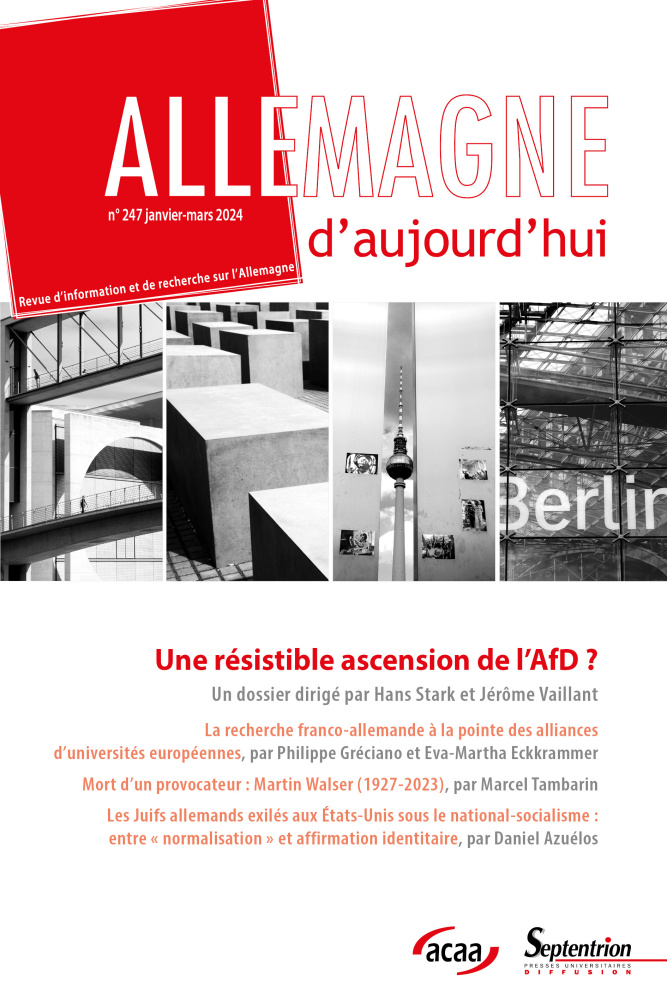AfD’s Foreign Policy Between Disengagement in the West and Partnership in the East

The Alternative for Germany (AfD) was formed in 2013 in the context of the currency crisis as an “alternative” to the Merkel government’s policy of rescuing the euro. Since then, the party’s platforms for the European elections in 2014, 2019 and 2024 have become increasingly radical.
From a “moderate Eurosceptic” party, the AfD has evolved into a far-right party that raises the spectre of a “Dexit” and calls for a double shift in German foreign policy. Europe, which is “harmful” in its current identity and functioning, must become an anti-Muslim “fortress” at the service of its member states, while more generally, Germany is called upon to follow the Russian economic and political model more closely. From the point of view of the AfD, if Germany has to choose between East and West, it must leave the EU and NATO, draw closer to Russia and join the Russian-Chinese political and economic structures of regional cooperation.
Etienne Dubslaff is lecturer in German civilization at the Université Paul-Valéry Montpellier 3 and a member of the CREG.
- This publication is available in French: Allemagne d'aujourd'hui, n° 247, janvier-mars 2024 (pp. 75 à 87).







